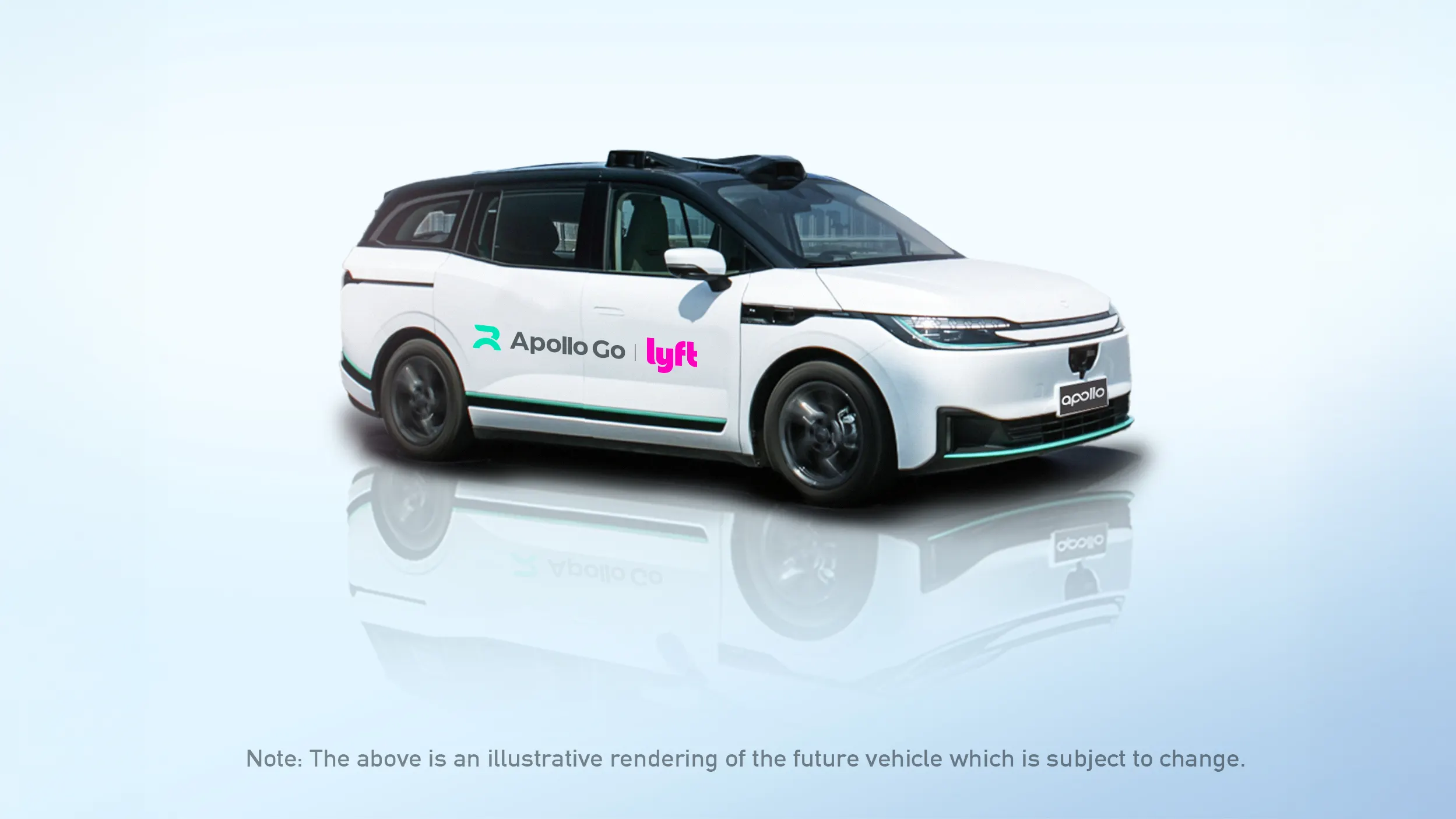- Lyft partners with Baidu to deploy Chinese driverless cars in Germany and the UK.
- Major international expansion for autonomous robotaxi services.
- Uses Baidu’s Apollo Go, plans to scale to thousands of vehicles in Europe.
The race to dominate Europe’s emerging autonomous vehicle market has taken an unexpected turn, with Chinese driverless cars poised to become a common sight on roads in Germany and the UK by 2026. While European markets have largely expected American firms like Waymo to lead the rollout of autonomous vehicles, Lyft has partnered with Beijing-based tech giant Baidu to deploy thousands of Apollo Go vehicles in European cities.
The cross-Pacific collaboration represents a corporate partnership and signals the first incursion of Chinese autonomous vehicle technology into Western markets, potentially disrupting established players and challenging European perceptions about the global leadership in self-driving.
The deployment will begin in Germany and the United Kingdom, where Baidu’s sixth-generation Apollo Go vehicles will integrate into Lyft’s ride-hailing platform, pending regulatory approval. Both companies project scaling to “thousands of vehicles” in multiple European markets in a few years of the initial launch.
Strategic timing and market entry
The announcement comes alongside Lyft’s recent acquisition of European ride-hailing app FREENOW from BMW and Mercedes-Benz for approximately $200 million. The acquisition provided Lyft with immediate access to operations in 180 cities in nine European countries, creating the infrastructure necessary for the robotaxi deployment.
Lyft, which has had very little presence in Europe so far, said it will prioritise Germany and the UK due in part to FREENOW’s existing presence in these countries, and keep “deep relationships with local regulators and taxi operators,” according to the company’s press release.
The timing aligns with regulatory developments in Europe. The UK has already enacted legislation that could allow autonomous vehicles on public roads by 2026, while Germany’s autonomous vehicle framework targets commercial operations in the same timeframe.
Germany’s roadmap includes plans for autonomous public transport services by 2027 and fully integrated autonomous mobility systems by 2030.
Chinese driverless cars enter European markets
For Beijing-based Baidu, the Lyft partnership represents the latest phase in bringing Chinese driverless cars to international markets through an aggressive global expansion strategy. Last month, Baidu partnered with Uber to deploy its autonomous cars on the ride-hailing giant’s platform outside the US and mainland China, with a focus on the Middle East and Asia.
Baidu’s Apollo Go platform brings operational experience to the partnership. In the fourth quarter of 2024, Apollo Go completed 1.1 million rides, a 36% increase from the previous year, and covering 130 million autonomous kilometres in multiple Chinese cities.
The technology foundation appears robust for international deployment. Baidu’s sixth-generation Chinese driverless cars, specifically the RT6 model, cost less than US$30,000 to manufacture – letting Baidu scale operations and maintain cost efficiency. The cost structure could prove important for competitive pricing in European markets.
Operational scale and technical capabilities
Baidu’s domestic operations demonstrate the scale potential for European deployment. The fleet of 500 vehicles operating in the city belongs to Apollo Go, a unit of Chinese tech giant Baidu. They serve an area that covers roughly half of Wuhan’s population, showcasing the service’s ability to handle large metropolitan areas.
The pricing strategy has proven effective in Chinese markets, where base fares start as low as 4 yuan (55 cents), compared with 18 yuan ($2.48) for a taxi driven by a human. However, European pricing strategies remain undisclosed as regulatory frameworks and market conditions differ significantly from China.
Baidu’s Apollo Go platform currently operates over 1,000 autonomous vehicles in 15 cities in China, having completed more than 11 million rides.
Competitive landscape and industry context
The Lyft-Baidu partnership enters an evolving competitive landscape in Europe. Uber has formed partnerships with companies like Waymo, Pony.ai, WeRide, and Momenta to prepare for robotaxi deployment in Europe, with its services expected to launch around the same time in 2026.
The autonomous vehicle market represents substantial economic potential. Analysts project that by 2030, Europe’s autonomous vehicle market could reach $50 billion in value, according to industry consulting estimates. The projected growth has attracted significant investment and partnership activity in the sector.
For Lyft specifically, the partnership addresses a gap in autonomous vehicle technology. Lyft hasn’t had the same pace of deals as Uber, but has made several partnerships in the past year, including a plan to add autonomous shuttles made by Austrian manufacturer Benteler Group to its network in late 2026.
Technical implementation and safety considerations
The deployment will use Baidu’s advanced autonomous driving technology stack developed for Chinese driverless cars. Baidu’s Apollo platform integrates lidar, radar, and cameras for urban navigation, complemented by Lyft’s app ecosystem for user booking and payments.
Safety protocols developed through Chinese operations will inform the European deployment. Baidu also received permits to test autonomous vehicles in Hong Kong in November 2024, marking its first entry into a right-hand drive market.
The partnership structure allocates responsibilities strategically. Lyft will retain ownership of the operational marketplace, and Baidu will provide vehicle supply, technology validation and technical support, according to company statements.
Regulatory hurdles and market challenges
Despite the ambitious timeline, regulatory challenges remain. European authorities maintain stringent standards for data privacy and vehicle safety that could impact deployment schedules. The regulatory approval process in both Germany and the UK will likely require extensive documentation of safety protocols and operational procedures.
Operational challenges specific to European markets may also emerge. Previous analysis has highlighted how English country lanes, cobbled Paris streets, or the chaos of Neapolitan traffic will present similar challenges to those faced by autonomous vehicle operators in complex Asian urban environments.
The partnership could also reshape urban transportation economics in Europe. The alliance could disrupt urban transport with lower costs and enhanced efficiency, potentially affecting traditional taxi services and public transport use.
For both companies, the collaboration represents a strategic response to market pressures. Baidu faces increasing domestic competition and seeks international revenue diversification, while Lyft requires autonomous technology to compete with Uber’s expanding autonomous vehicle partnerships.
The deployment timeline of 2026 places both companies in direct competition with other major autonomous vehicle initiatives in Europe, setting the stage for what industry observers expect to be a transformative period for urban mobility.

Want to learn about the IoT from industry leaders? Check out IoT Tech Expo taking place in Amsterdam, California, and London. The comprehensive event is co-located with other leading events including Cyber Security & Cloud Expo, AI & Big Data Expo, Intelligent Automation Conference, Edge Computing Expo, and Digital Transformation Week.
Explore other upcoming enterprise technology events and webinars powered by TechForge here.







